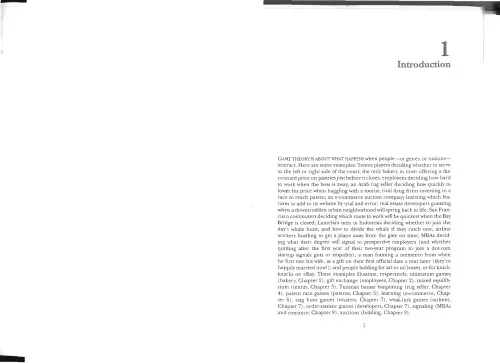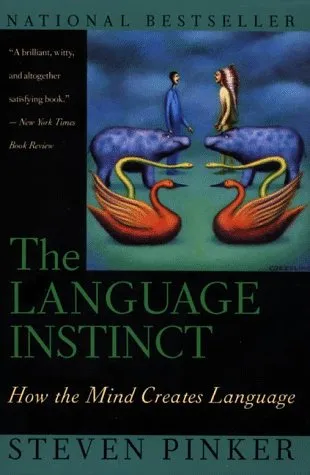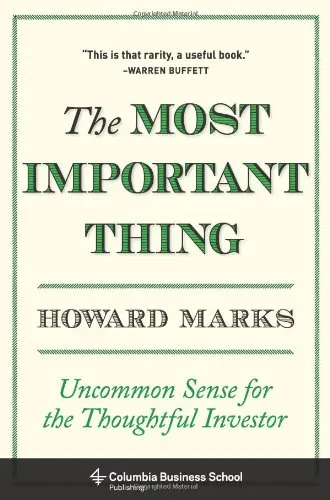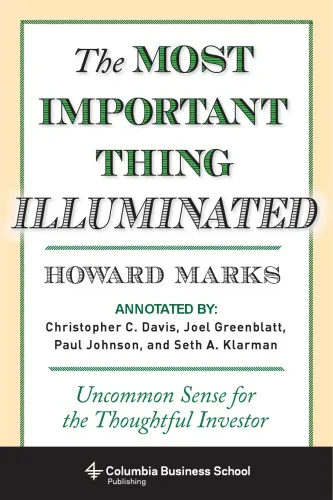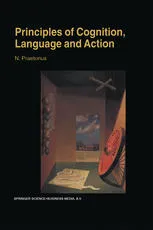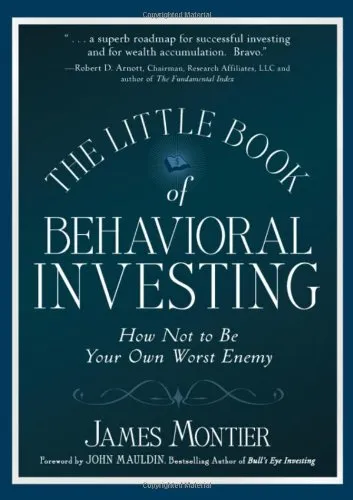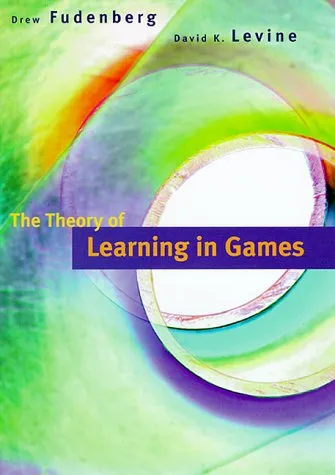Behavioral Game Theory-Experiments in Strategic Interaction
4.5
بر اساس نظر کاربران

شما میتونید سوالاتتون در باره کتاب رو از هوش مصنوعیش بعد از ورود بپرسید
هر دانلود یا پرسش از هوش مصنوعی 2 امتیاز لازم دارد، برای بدست آوردن امتیاز رایگان، به صفحه ی راهنمای امتیازات سر بزنید و یک سری کار ارزشمند انجام بدینکتاب های مرتبط:
معرفی کتاب "Behavioral Game Theory-Experiments in Strategic Interaction"
کتاب Behavioral Game Theory-Experiments in Strategic Interaction نوشتهٔ کولین کمرر، یکی از برجستهترین آثار در حوزهٔ تئوری بازیهای رفتاری و تحلیل تعاملات استراتژیک است. این کتاب ترکیبی از تحقیقات گستردهٔ تجربی و ارائهٔ مدلهای تئوریک است که به فهم رفتار واقعی انسانها در شرایط تصمیمگیری و محیطهای استراتژیک کمک میکند. در ادامه بخشهای مختلف این کتاب معرفی و تشریح میشود.
خلاصهٔ کتاب
این کتاب فراتر از فرضیات استاندارد نظریۀ بازیها، به تحلیل و بررسی رفتار واقعی افراد در بازیهای استراتژیک میپردازد. برخلاف تئوری بازیهای کلاسیک که مبتنی بر عقلانیت کامل است، کمرر تلاش میکند نشان دهد که رفتار انسانها در دنیای واقعی از هنجارهای ایدهآل فاصله دارد. مباحث اصلی کتاب شامل سه حوزهٔ اصلی هستند:
- ۱. یادگیری: چگونه افراد از تجارب گذشته برای تصمیمگیری بهتر در آینده استفاده میکنند؟
- ۲. تناسب اجتماعی: چگونه هنجارهای اجتماعی، همکاری، و توجه به منافع دیگران روی تصمیمات تاثیر میگذارد؟
- ۳. محاسبات شناختی: چگونه محدودیتهای شناختی و پردازش اطلاعات رفتار انسانی را محدود میکند؟
این رویکرد، مدلهایی را دربرمیگیرد که ترکیبی از روانشناسی شناختی و نظریههای سنتی بازیها هستند و از آزمایشها برای تأیید یا رد ادعاها استفاده میکند. کتاب همچنین شامل مثالها و آزمایشهای معروف مانند "Public Goods Games"، "Ultimatum Games" و "Trust Games" است که بینشهای عمیقی دربارهٔ فرآیندهای تصمیمگیری انسان ارائه میدهد.
نکات کلیدی کتاب
- رفتار انسان در محیطهای استراتژیک همیشه با فرضیات عقلایی تطابق ندارد.
- الگوهای رفتاری مانند انصاف، انتقام، و همکاری نقش قابل توجهی در تصمیمگیری دارند.
- فرایند یادگیری و تجربه افراد میتواند اشکال متنوعی در تصمیمگیری استراتژیک به وجود بیاورد.
- تجارب تجربی و آزمایشهای رفتاری، ابزار قدرتمندی برای آزمون نظریهها و بهبود مدلها هستند.
نقلقولهای معروف از کتاب
"Behavioral game theory is about what players actually do, not what they should do."
"Economic theory often assumes hyper-rational players, but behavioral game theory opens the door to bounded rationality and real psychological insights."
چرا این کتاب مهم است؟
کتاب Behavioral Game Theory بهعنوان مرجعی تخصصی در زمینهٔ تلفیق نظریههای سنتی بازی و روانشناسی، تأثیر بسزایی هم در دنیای آکادمیک و هم در حوزهٔ کاربردی، از بازاریابی گرفته تا سیاستگذاری عمومی داشته است. دلایل اهمیت این کتاب عبارتند از:
- ارائهٔ چارچوبی جامع برای تحلیل تصمیمهای واقعی افراد در شرایط استراتژیک.
- تقویت پل ارتباطی میان اقتصاد، روانشناسی، و علوم شناختی.
- آموزش روشهایی برای بهبود عملکرد در مذاکره و تصمیمگیری.
- الهامبخشی به محققان برای انجام آزمایشهای تجربی جدید و توسعهٔ تئوریهای بهتر.
Introduction to "Behavioral Game Theory: Experiments in Strategic Interaction"
"Behavioral Game Theory: Experiments in Strategic Interaction," authored by Colin F. Camerer, offers a groundbreaking exploration of how human behavior intersects with the mathematical models of strategic decision-making. Unlike classical game theory, which assumes that players are perfectly rational, Behavioral Game Theory integrates psychological insights to account for human limitations and social preferences. This book bridges the gap between theoretical predictions and real-world behaviors, making it an indispensable resource for anyone interested in economics, psychology, sociology, or decision sciences.
Through a detailed examination of experiments and real-world applications, this book provides rich insights into why people act the way they do in strategic situations. It combines meticulous empirical data with theoretical modeling, encouraging readers to rethink some of the fundamental assumptions in traditional game theory. Whether you are an academic researcher, a student, or a professional in a related field, this book is designed to deepen your understanding of strategic interaction in a way that reflects actual human behavior.
Detailed Summary of the Book
Behavioral Game Theory begins by addressing the limitations of classical game theory. Standard models assume that individuals are fully rational, have complete information, and aim to maximize their own utility. Camerer challenges these assumptions by emphasizing the importance of "bounded rationality," as well as the roles of fairness, reciprocity, and social norms in real-world decision-making.
The book is divided into sections that tackle various behavioral factors influencing strategic interaction. Topics include:
- Bounded Rationality: How cognitive limitations affect decision-making and lead to deviations from standard predictions.
- Learning in Games: How individuals adjust their strategies through repeated interactions, gradually improving their understanding of opponents' behaviors.
- Social Preferences: How fairness, altruism, and reciprocity shape the outcomes of strategic games, often in ways that contradict purely self-interested models.
- Coordination and Cooperation: Analyzing when and why individuals manage to work together, even when incentives push them toward selfishness.
Camerer uses a combination of lab experiments, computational modeling, and field data to explore these ideas. For each topic, the book systematically introduces the theoretical framework, discusses experimental results, and derives insights that refine and expand traditional game-theoretic models.
Key Takeaways
- Behavior in strategic situations is not always fully rational; human preferences for fairness, trust, and reciprocity often drive decision-making.
- Empirical evidence from experiments plays a crucial role in testing theoretical game models, revealing their strengths and limitations.
- Learning and adaptation are critical components of strategic interaction, as participants refine strategies over time through experience.
- Behavioral Game Theory provides a more accurate and human-centered approach to understanding strategic situations, offering practical insights for policymakers, businesses, and individuals.
- Combining economics, psychology, and sociology leads to a richer understanding of decision-making and makes game theory more applicable to real-life problems.
Famous Quotes from the Book
Here are some thought-provoking quotes from "Behavioral Game Theory":
"In strategic interactions, rarely is the first move purely rational; instead, it is shaped by expectations, trust, and a sense of fairness."
"Behavioral game theory challenges the idealized notions of classical economics by incorporating what really drives people: not perfect rationality, but bounded cognition, evolving preferences, and emotional underpinnings."
"Experimental economics teaches us not only about human behavior but also about the power of theory when combined with empirical testing."
Why This Book Matters
"Behavioral Game Theory" is a pioneering work because it breaks free from the rigid assumptions of classical models and incorporates real human behaviors into the study of strategic interaction. This makes the book not only academically groundbreaking but also practically useful.
For economists and psychologists, it provides a framework for understanding the interplay between rationality and emotion. For business leaders and policymakers, it offers actionable insights into negotiation, teamwork, and decision-making in high-stakes environments. Finally, for students and researchers, the book serves as both a textbook and a reference guide, rich in data and theoretical innovation.
By connecting the dots between theory, experimentation, and real-world applications, Camerer demonstrates the profound relevance of Behavioral Game Theory across various disciplines. It encourages critical thinking, pushes the boundaries of traditional frameworks, and suggests more nuanced, human-centered approaches to modeling strategic decisions. This is a book that equips its readers with the tools to better understand—and navigate—the complexities of human interaction.
دانلود رایگان مستقیم
شما میتونید سوالاتتون در باره کتاب رو از هوش مصنوعیش بعد از ورود بپرسید
دسترسی به کتابها از طریق پلتفرمهای قانونی و کتابخانههای عمومی نه تنها از حقوق نویسندگان و ناشران حمایت میکند، بلکه به پایداری فرهنگ کتابخوانی نیز کمک میرساند. پیش از دانلود، لحظهای به بررسی این گزینهها فکر کنید.
این کتاب رو در پلتفرم های دیگه ببینید
WorldCat به شما کمک میکنه تا کتاب ها رو در کتابخانه های سراسر دنیا پیدا کنید
امتیازها، نظرات تخصصی و صحبت ها درباره کتاب را در Goodreads ببینید
کتابهای کمیاب یا دست دوم را در AbeBooks پیدا کنید و بخرید
